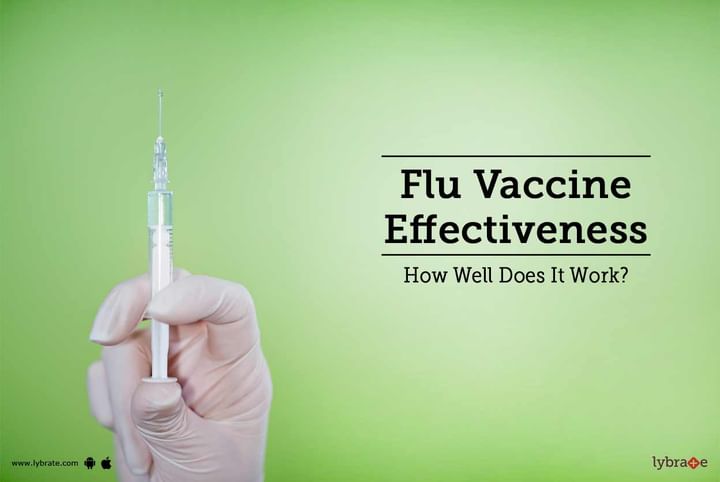Flu Vaccine Effectiveness: How Well Does It Work?
Yearly flu vaccination is the best tool currently available to protect against influenza (flu).
While how well the flu vaccine works can vary, the Centers for Disease Control and Prevention (CDC) recommends a yearly flu vaccination as the first and most important step in protecting against flu and its potentially serious complications. Millions of people have safely received flu vaccines for decades. Flu vaccination can reduce flu illnesses, doctors' visits, and missed work and school due to flu, as well as prevent flu-related hospitalizations.
A flu vaccination does not guarantee protection against the flu. Some people who get vaccinated might still get sick. However, people who get a flu vaccine are less likely to get sick with flu or hospitalized from flu than someone who does not get vaccinated.
Why do I need to get vaccinated every year?
New flu vaccines are released every year to keep up with rapidly adapting flu viruses. Because flu viruses evolve so quickly, last year's vaccine may not protect you from this year's viruses.
After vaccination, your immune system produces antibodies that will protect you from the vaccine viruses. In general, though, antibody levels start to decline over time — another reason to get a flu shot every year.
Flu vaccines bring down the risks of suffering from flu. However, its effectiveness is based on different factors.
-
Age: Usually, the flu vaccine happens to work the best for healthy adults. However, these vaccines cannot work as well with children, especially infants (below the age of 2-3 years). Nevertheless, the efficacy improves with age. Since older people are more prone to contracting the flu virus, it is essential that they get themselves vaccinated. Even if the vaccine is not able to ward off the flu entirely, it can still help reduce the risks to some extent.
-
General Health: Vaccine spurs immunity into action. It helps your body in identifying and fighting the virus. The efficacy of the flu vaccine solely depends on the capability of your body’s immunity system and how well it responds to the virus. Chronic illnesses weaken your body’s defense mechanism and with a poor immunity system, the vaccine may not work properly.
-
The time of the vaccination: For optimal protection, it is advised to go for the vaccination every year right before the ‘flu’ season starts. This is because after the flu season gets done with, old vaccines may not work as effectively.
The flu vaccine needs to be updated every season to guard you against the kind of flu dominant in that particular year. Getting yourself vaccinated is also not a guaranteed foolproof protection, however, it does render partial immunity and helps reduce the severity of the symptoms. However, it should be noted that flu vaccine cannot shield one from cold viruses.
If you wish to discuss about any specific problem, you can consult a doctor and ask a free question.



+1.svg)
